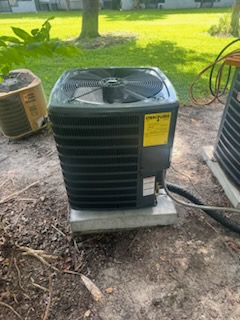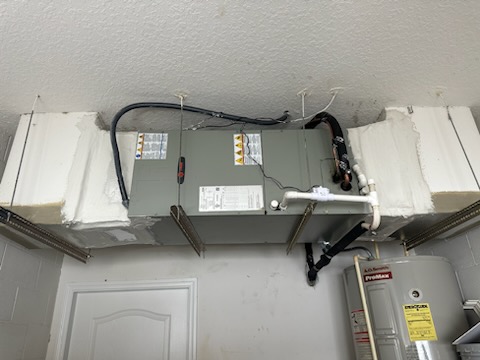Choosing the Right HVAC Repair Service for Your Home
Choosing the Right HVAC Repair Service for Your Home
Blog Article
Common AC Problems and How to Fix Them
Heating, Ventilation, and Air Fitness (HVAC) techniques are essential for sustaining comfort in properties and businesses. But, like all physical systems, they could fail over time. Distinguishing early signals of trouble will save you from expensive fixes and assure your system runs efficiently. Here's how to recognize as soon as your HVAC service program wants fix:

Signs Your HVAC System Needs Repair
There are lots of signs that the HVAC process may need repair. Some tend to be more clear than others, but it's vital that you look closely at any changes in your system's performance. Ignoring potential problems can cause to help expand damage and costly repairs down the line.
Uncommon Sounds
One of the very apparent signs that the HVAC program wants restoration is uncommon noises coming from the unit. In the event that you hear going, clanging, or running seems, it may indicate that there's a loose or damaged element within the system. It's essential not to ignore these tones and have them checked out by a skilled when possible.
1. Unexpected Increase in Energy Costs
One of the very most obvious signals your HVAC system may need repair is an immediate spike in power bills. If your energy use hasn't changed considerably, your bills have increased, it could indicate that the machine is functioning tougher than it should. This often occurs because of wear and grab or components that need maintenance. Approaching the problem immediately may reduce further efficiency losses and larger costs.
2. Strange Sounds
HVAC programs operate with a certain level of history sound, but uncommon appears like rattling, banging, squealing, or grinding shouldn't go unnoticed. These sounds can indicate free components, fan problems, or engine problems. Ignoring them could result in significant damage, turning an inexpensive resolve in to a costly restoration job.
3. Fragile Circulation or Bumpy Temperatures
If circulation from your own HVAC is visibly weaker or some areas sense also cold or hot while the others are relaxed, it may show that your system's blower or ductwork is compromised. Such issues may stem from a clogged filter, duct leak, or failing compressor. Immediate interest can ensure your house maintains consistent comfort levels.
4. Weird Smells
A distressing smell via your ports is never a good sign. A damp stench might suggest mold development within the device, while burning or smoky scents could indicate electrical or physical issues. These scents shouldn't be dismissed as they could create health problems or result in process failure.
5. Frequent Biking or Trouble Starting
Does your HVAC system start and off more frequently than normal? Or does it battle to start at all? These problems could indicate a problem with the thermostat, wiring, or other internal components. Continuous cycling wastes power and increases wear on the device, leading to more significant breakdowns if left unaddressed.
6. Surplus Humidity or Humidity Build-up

Your HVAC process is responsible for sustaining appropriate indoor humidity levels. If you see extortionate moisture near the machine or experience extraordinarily large humidity indoors, it may mean the system is malfunctioning. Refrigerant escapes or clogged drainage are common culprits, and they need immediate professional evaluation.
Ultimate Feelings
Your HVAC system is really a important expense in home ease and power efficiency. Realizing early caution signals and working easily can help prevent expensive breakdowns and increase the lifetime of your system. Be aware of these problems and consult a certified HVAC technician if you see any one of them. Proactive treatment nowadays can help you save time, money, and strain tomorrow. Report this page